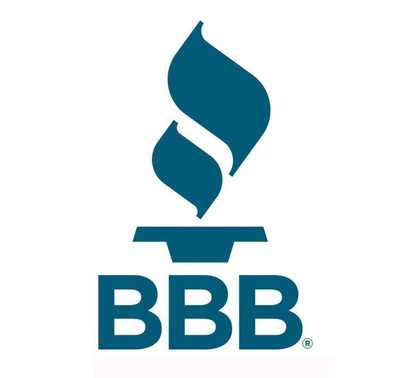BBB Offers Tips to Keep Your Data Safe
Tuesday, January 23rd, 2024 -- 1:00 PM

The possibility of a cyberattack by a foreign country has gone from being the stuff of science fiction to a common threat that is often reported in the news.
While it may seem like there is nothing an individual can do to stop a cyberattack, there are some best practices that consumers and businesses can do to help guard against losing important personal information to cyber thieves.
Quite a bit of personal information is already shared on the internet by cell phones, tablets, laptops or any other device that connects through wifi or an internet provider. These access points make it easier to shop, bank, make travel arrangements, and keep in touch with friends or family.
When online, safeguard your information to help avoid scams, fraud, and identity theft. Periodically, it is a good idea to review who has your information. The Better Business Bureau and the National Cyber Security Alliance offer the following tips to help secure the privacy of critical information:
- Share with care:
Posts on social media last a long time. Consider who will see the post, how readers might perceive it, and what information it might reveal about the individual posting it.
- Manage privacy settings:
Check the privacy and security settings on web services and apps and set them to your comfort level for information sharing. Each device, application, or browser used will have different features to limit how and with whom you share information.
- Personal info is like money:
Value it. Protect it. Personal information, such as purchase history, IP address, or location, has tremendous value to businesses – just like money. Make informed decisions about whether or not to share data with certain businesses by considering the amount of personal information they are asking for and weighing it against the benefits you may receive in return.
- Make your passwords long and strong:
Use long passwords with a combination of upper and lower case letters, numbers, and symbols – eight characters for most accounts and twelve characters for email and financial accounts.
Don’t use the same password for multiple accounts, especially email and financial. Keep a paper list of your passwords in a safe place, not on or near your computer. Consider using a password vault application. See BBB's tips for creating a strong password.
- Keep tabs on apps.
Many apps ask for access to personal information, such as geographic location, contacts list, and photo album, before using their services. Be thoughtful about who gets that information, and be wary of apps that require access to information that is not required or relevant to the services they offer. Delete unused apps on your internet-connect devices and keep others secure by performing updates.
- Lock down your login:
For your online accounts, use the strongest authentication tools available. Your user names and passwords are not enough; consider two-factor authentication for key accounts like email, banking, and social media, especially for access on mobile devices.
- Don’t click on unfamiliar links:
Whether at home or at work, don’t click on links from unfamiliar sources or unexpected correspondence. One false click can infect a whole computer… or a whole business.
- Pay attention to internet-connected devices:
Smart thermostats, voice control systems, cars, and even refrigerators are just the beginning of the growing list of devices that watch our homes and track our locations. Read the privacy policy and understand what data is being collected and how it will be used. Read BBB's tips on smart devices and cyber security risks.
Charitable organizations should be aware of data privacy. Donors and others communicate online with charities via their websites, emails, and other online means and need to be informed about what policies are in place to address privacy concerns.
BBB Wise Giving Alliance published a blog article containing advice for charities regarding data privacy concerns.
Feel free to contact us with questions and/or comments.




